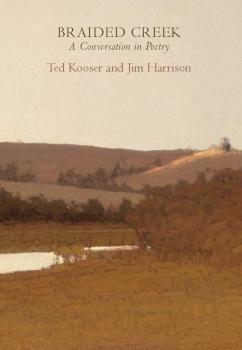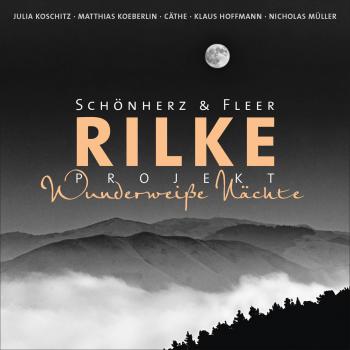ТОП просматриваемых книг сайта:
Зарубежные стихи
Различные книги в жанре Зарубежные стихи, доступные для чтения и скачиванияАннотация
• Continuation of Orr’s previous book, Concerning the Book That Is the Body of the Beloved, which is an endless, imaginary volume that has gathered itself into all the poems and songs since the beginning of time. • This book (like the last) was also inspired by a dream • Reviewers have likened Orr’s new poems to those of Rumi • Orr continues to push the “lyric sequence” beyond the usual expectations • Mary Oliver is passionate advocate for Orr’s current project: “Gregory Orr is a gorgeous poet.” • Last book selected as an “Editor’s Choice” from VQR
Аннотация
Braided Creek contains more than 300 poems exchanged in this longstanding correspondence. Wise, wry, and penetrating, the poems touch upon numerous subjects, from the natural world to the nature of time. Harrison and Kooser decided to remain silent over who wrote which poem, allowing their voices, ideas, and images to swirl and merge into this remarkable suite of lyrics.Each time I go outside the worldis different. This has happened all my life. *The moon put her handover my mouth and told meto shut up and watch.*A nephew rubs the sore feetof his aunt,and the rope that lifts us all toward gracecreaks on the pulley.*Under the storyteller’s hatare many heads, all troubled.Jim Harrison, one of America’s best-loved writers, is author of two dozen books of poetry, fiction, essays, food criticism, and memoir. He is best known for a collection of novellas, Legends of the Fall, and the epic novel Dalva. He lives in western Montana and southern Arizona.Ted Kooser is the author of eight collections of poetry and a prose memoir. His poetry appears regularly in The Atlantic Monthly, The New Yorker, Poetry, and The Nation. He lives in Nebraska.
Аннотация
Renaissance Normcore belts like a classically trained riot grrrl, composing catchy tunes in the key of fear and desire. Building on the dreamy emotional landscapes she plumbed in If I Were in a Cage I’d Reach Out for You , Barclay navigates even sharper peaks and valleys in her second collection to examine the links between intimacy and power. Tracking the paradoxical impulses of anguish and joy that underpin daily life in our hostile neoliberal climate, these poems are both abject and sweet as they repurpose loss into life and test the bounds of how much a poem can hold.
Аннотация
Michelle Elrick's <i>then/again</i> is a poetic account of finding home, and the meanings and moments that the concept of home can come to embody. The collection tracks the poet through a landscape of intimate places—an ancestral home in Scotland, a mother's birthplace in Salzburg, a childhood home on the West Coast—as well as the memory-warped terrain of the poet's past houses.
In brief poetic capsules that combine to form long, lyrical narratives, Elrick enfolds layers of tactile and remembered experience, offering continual moments of surprise. In the observer's eye, the double act of perceiving and writing lends transformative and mythic properties to the everyday: "a heron drums a pattern of shadows on the surface of the sea, wings tick with quartz regularity. bay clouds spot red, bulbs of peach bloom, smoulder and die down into blue.” The collection is infused by a sense of nostalgia and longing within the present moment, illustrating the elusiveness of home even while it is being lived: "I watch as the day opens, expanding its geometry. diffuse light penetrates the blind. hot sun yellows cold concrete (caress stretching across the courtyard).”
Each quiet moment of reflection builds upon the others to produce a sense of place that is as immediate and fleeting as home itself. Elrick has an uncanny sense for capturing and illuminating those moments that will later glow in memory.
In brief poetic capsules that combine to form long, lyrical narratives, Elrick enfolds layers of tactile and remembered experience, offering continual moments of surprise. In the observer's eye, the double act of perceiving and writing lends transformative and mythic properties to the everyday: "a heron drums a pattern of shadows on the surface of the sea, wings tick with quartz regularity. bay clouds spot red, bulbs of peach bloom, smoulder and die down into blue.” The collection is infused by a sense of nostalgia and longing within the present moment, illustrating the elusiveness of home even while it is being lived: "I watch as the day opens, expanding its geometry. diffuse light penetrates the blind. hot sun yellows cold concrete (caress stretching across the courtyard).”
Each quiet moment of reflection builds upon the others to produce a sense of place that is as immediate and fleeting as home itself. Elrick has an uncanny sense for capturing and illuminating those moments that will later glow in memory.
Аннотация
Nobody knows bad ideas quite like Michael V. Smith. In his new collection of poetry, he speaks to an intangibility of sense, or a sense beyond the rational. Bad Ideas explores the inevitability of loss and triumph with characteristic irony and tenderness. Through this dazzling collection of a remembered life, hung out to ogle like laundry on the line, Smith recalls a mother who discovers a sex tape, a man who dreams of birthing his own son and a woman who blends her baby girls into milkshakes. Bad Ideas is a testament to how an altered perspective effects change, how stories can be recast. The collection forms itself into an exercise in which optimism is a practiced art recaptured in dreams and prayers and combined to acknowledge the unknowable, the contradictory, the ungraspable: "An evening is composed / in a hundred unchoreographed / dramas”; "I pull a Clark Kent / transform, dressed as a monk / in burgundy and gold robes. I think / this will protect me, but it doesn't”; "Dear Hatred, sweet / Hatred, do you not move our enemies / to know us better?” Hyperbolic and sincere, this collection brawls with the unquantifiable themes of family, loneliness and love.
Аннотация
“This night in Oppenheimer Park Dan asked me to shit-kick this chick in the face as she owed money and I said no because I didn’t know who she was and I wasn’t about to play with fire so he sat on the bench then stood up and did a flying kick twice to her chin and she convulsed and passed out he said he didn’t want to spill blood because she had HIV…” —“Tales” Dissecting herself and the life she once knew living a transient life that included time spent in Vancouver's Downtown Eastside as a bonafide drug addict, Blanchard writes plainly about violence, drug use and sex work in Fresh Pack of Smokes , offering insight into an often overlooked or misunderstood world.










